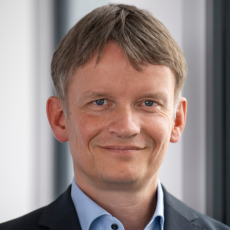What are the growth projections and what is the role you envision for solar energy in the journey towards net zero?
Solar has a bright future. All projections indicate that it will get to a share of almost 50% of the electrical energy generation in 2050. This is because we need to substitute fossils and also electrify certain sectors, and there is also a strong will to use solar to meet these requirements.
We have been seeing, however, a few clouds in this very sunny future regarding bottlenecks in the supply chain. Meyer Burger itself had to adjust its projections for 2022 and 2023. How do you see this panning out?
Luckily the reason behind reducing our projections was not the lack of materials needed for manufacturing the modules themselves, but rather it had to do with missing components for the equipment we use in the production process. This has led to a delay in our ramp up speed and the adjusted projections you mentioned.
You are part of a market that is still dominated by Asia, this has come up in many of our discussions recently. Are there any areas left where Europe fares better than its competition?
Something that is a bit invisible to the public is the fact that Europe has lost the production footprint to Asia, but we have never lost the leadership in technology.

The global PV success story is happening on the basis of leading European technology.
And luckily, despite the fact that the industry moved to China, the support for the R&D sector has been maintained over the last decade. That is definitely a good foundation on which we can now build.
At Meyer Burger for instance, we are producing much of the technology and equipment we need ourselves, and also collaborate with other western providers for materials like polysilicon or glass. There are a few key dependencies which we have to keep an eye on, one being the wafer supply, which used to be a German domain before we lost it to China. But just two weeks ago we signed an agreement with Norwegian Crystals, one of the few European wafer suppliers.
Some of your peers expressed the idea that Europe invests hugely in R&D but actually lags behind in terms of full scale production, risking becoming an incubator for the world without actually manifesting what it creates. What is your opinion on this?
Absolutely. I would even argue that in the renewable space there is no industrial policy, despite the very ambitious targets. There is little stimulus for manufacturing to happen here. And that's an element that the EU can change if it wants to. If Europeans do not act, then other countries will do it. India for instance has just started closing the market to those on the outside, stimulating domestic manufacturing. The US have introduced their Inflation Reduction Act, which is very attractive to solar manufacturing.
In what way has this influenced your change of strategy two years ago, when you started your own solar module production?
Our great advantage is that we have our own technology in-house, which nobody else has access to. We also have the strong will to carry out this project. So when we had the models ready and the business plans done, we just executed them step by step. And I think we did that successfully.
This may seem like a very obvious question, but why is renewable energy the best way to face climate change? Some argue that a better approach is to raise the economies that have lower GDPs, and take them to a point where they can actually start getting preoccupied about the environment and work towards that.
The way I see it, renewable energy offers developing countries an opportunity to not repeat the mistakes that the developed countries now have to correct. Furthermore, if we think about places like Africa, they have very high irradiation levels which also makes them the best places for future power-to-X solutions. I believe this is a great chance; if we extend the technology used by developed countries to these emerging economies, we can bring massive change and have tremendous impact. This is why I so strongly believe in the sector.





